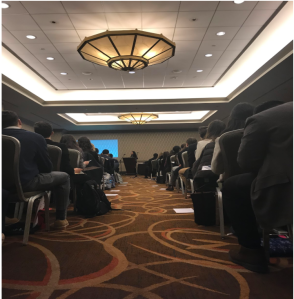Reporting by BBC
BOSTON–Today was the very first day of the Disarmament and International Security Committee’s meeting, but that didn’t stop delegations from diving right into the depths of Internet security and safety policy.
For context, DISEC, or the Disarmament and International Security Committee, wad created in the name of addressing the dawn of the age of terrorism through technology, in which the Internet is misused to gain access to weapons, plan attacks, and spread their ideology. Due to the relatively new birth of the Internet and its nature of international bridging, law enforcement largely does not apply or is nonexistent, opening the Internet up to such terrorist activity. Nations from across the globe began their discussions on issues of the right of Internet privacy, degrees of government regulation of the Internet, and international policing of the Internet today, and one bloc seemed to predominate the debate.
In recapitulation, the committee session began with a formal moderated caucus in which the delegations expressed their positions regarding Internet security specifically in regard to terrorism, and by general observation, most major delegations favored varying degrees of a balance of Internet privacy versus security, with a few passionate extremist delegations pushing for drastic measures to ensure either the security or the privacy of their nations and the world.
As the session progressed, an unmoderated caucus was passed and the delegates rushed to form blocs. As expected, the moderate bloc seemed to preponderate over the much less popular extremist bloc for several reasons. First of all, moderate views are fundamentally auspicious in their appeal to a wide spectrum of positions, especially in such an early stage as the committee’s first session. The Delegations of France, the United States of America, and Norway naturally dominated the conversation. “Essentially, we prioritize security, however, privacy is a right, and all civilians have a right to that privacy. We value both qualities and seek to focus on achieving a balance of them in both developed and undeveloped countries,” stated the Delegation of France. The Delegation of America, on the other hand, took a view on the opposite side of the spectrum midpoint, citing its founding principles of the inalienable right to privacy and government intervention only in situations to support its position of personal privacy over Internet regulation, but said that it would fully support a set of multinational regulations on the Internet in the name of preventing terrorism.
This bloc is laying the groundwork for a draft resolution to address the utilization of the Internet for the spread and planning of terrorist activities and doctrines, as well as the heightened accessibility of terrorists to weapons via the Internet. At this stage, the bloc is not nearly developed enough to draw any defensible conclusions, so it is all speculation from here. It is evident that the bloc encompasses a wide spectrum of positions that do not align with each other, but it seems that the extremist groups will have to push and pull this master bloc one way or another to design policies that land on either the privacy or security side of the spectrum. One final, deciding question remains for the delegations to answer: How far should measures to protect international security from terrorism go in restricting the core right of individual privacy on the Internet?






